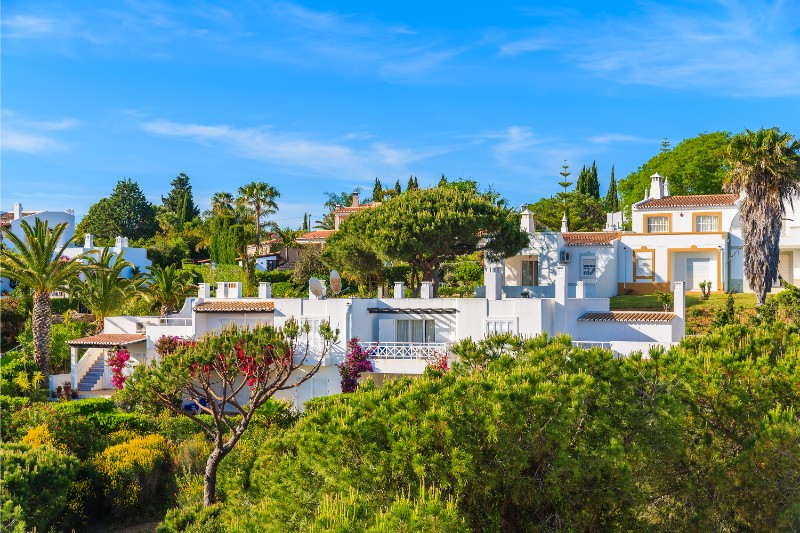
The dream of retirement often conjures images of tranquil days, new adventures, and a life unburdened by the daily grind. For an increasing number of individuals, this dream extends beyond national borders, envisioning a future in an expat haven where their savings stretch further, the climate is more inviting, and cultural experiences abound. While the allure of retiring abroad is undeniable, it’s a decision that requires careful consideration, weighing the romanticized notions against the practical realities.
Moving to a foreign country involves navigating a new culture, language, healthcare system, and legal framework. It means understanding visa requirements, tax implications, and the nuances of daily life that can differ vastly from what one is accustomed to. This blog delves into some of the most popular expat destinations for retirees, exploring the unique pros and cons of each, to help you make an informed decision for your golden years.
The Appeal of Retiring Abroad
Before we explore specific countries, let’s understand why retiring abroad has become such a compelling option:
- Cost of Living: This is often the primary driver. Many popular retirement destinations offer significantly lower costs for housing, food, transportation, and daily necessities compared to the United States. This allows retirees to live more comfortably, often on a fixed income, or even enhance their lifestyle.
- Healthcare Savings: While not always “free,” healthcare costs in many expat-friendly countries can be substantially lower than in the United States. Many countries offer universal healthcare systems that expats can access, often for a fee, or provide affordable private insurance options.
- New Adventures and Cultural Immersion: Retiring abroad opens doors to new cultures, languages, cuisines, and historical sites. It offers the chance to learn a new skill, engage with different communities, and experience a fresh perspective on life.
- Climate and Lifestyle: For many, escaping harsh winters or seeking a more relaxed, outdoor-oriented lifestyle is a major draw. Countries with warm climates and a slower pace of life are often high on the list.
- Proximity to Family (for some): Latin American countries offer the benefit of being relatively close to family and friends for visits, while still providing a distinctly international experience.
The Challenges of Retiring Abroad
It’s crucial to acknowledge the potential downsides:
- Social Isolation: Being far from established social networks, family, and lifelong friends can lead to loneliness, especially in the initial stages of adjustment. Building a new community takes effort.
- Language Barrier: While English is widely spoken in many expat communities, daily life often requires some proficiency in the local language, which can be a significant hurdle for some.
- Navigating Bureaucracy: Visa applications, residency permits, healthcare enrollment, and tax regulations can be complex and time-consuming, often requiring patience and professional assistance.
- Cultural Differences: Beyond language, adapting to new social norms, customs, and ways of doing things can be challenging and sometimes frustrating.
- Healthcare Quality and Accessibility: While often more affordable, the quality and accessibility of healthcare can vary. Understanding the public and private options, wait times, and emergency services is vital.
- Political and Economic Instability: Some regions may experience political or economic volatility that can impact a retiree’s financial security and sense of safety.
- Tax Implications: Understanding how your retirement income and assets are taxed in both the United States and your new country of residence is crucial and can be complicated. Seeking professional tax advice is highly recommended.
Now, let’s explore some of the top expat destinations for U.S. retirees:
- Portugal
Portugal has consistently ranked as one of the best retirement destinations, lauded for its warm climate, rich history, delicious cuisine, and welcoming atmosphere.
Pros:
- Affordable Living: A couple can live comfortably in charming villages and smaller cities for around $1,500 to $2,000 per month. Even in larger cities like Lisbon or Porto, a budget of $2,500 to $3,000 can provide a good quality of life.
- Excellent Healthcare: Portugal boasts a universal public healthcare system (Serviço Nacional de Saúde – SNS) that is accessible to legal residents, including expats. While not entirely free, costs are significantly subsidized. Many expats also opt for affordable private health insurance for quicker access and more specialized services.
- Golden Visa Program & D7 Visa: Portugal has attractive visa programs for retirees, such as the D7 Visa (Passive Income Visa), making residency relatively straightforward for those with a stable, passive income. The Golden Visa is a residency-through investment program requiring an investment of more than $280,000 at today’s exchange rates
- Safety and Stability: Portugal is considered one of the safest countries in the world.
- Climate: The winters are mild, and the summers are sunny and hot, particularly in southern Portugal.
- Culture and Lifestyle: Rich history, stunning coastline, vibrant cities, delicious food and wine, and a relaxed pace of life. You’ll generally hear English spoken in places popular with tourists and by the young.
Cons:
- Bureaucracy: While improving, Portuguese bureaucracy can be slow and complex.
- Language Barrier: While English is common in cities, learning some Portuguese is essential for deeper integration, especially in smaller towns.
- Rising Popularity: Increased demand, particularly in Lisbon and Porto, has led to rising housing costs in these urban centers.
-
Mexico
Mexico remains a perennial favorite for North American retirees due to its proximity, affordability, diverse landscapes, and vibrant culture.
Pros:
- Affordable Cost of Living: Retirees can live comfortably on a budget of $1,500 to $2,500 per month in many locations. Housing, groceries, and dining out are generally much cheaper than in the US.
- Diverse Environments: From pristine beaches in places like Puerto Vallarta and Playa del Carmen to colonial highland towns like San Miguel de Allende and Oaxaca, Mexico offers a wide array of climates and lifestyles.
- Accessible Healthcare: Mexico has both public and private healthcare systems. Expats with legal residency can voluntarily enroll in the public system (IMSS) for comprehensive coverage, though private healthcare is also affordable and offers more modern facilities and shorter wait times. Doctor’s consultations can be as low as $15-25.
- Proximity to the US: Easy travel for visits with family and friends.
- Rich Culture: Vibrant traditions, delicious cuisine, and a strong sense of community.
Cons:
- Safety Concerns: While many expat communities are safe, certain regions have ongoing security issues. Researching specific areas is crucial.
- Bureaucracy: Navigating residency requirements and other administrative processes can be challenging.
- Language Barrier: While English is spoken in tourist areas, Spanish proficiency greatly enhances the experience and daily life.
- Infrastructure: Quality of public services and infrastructure can vary significantly by region.
-
Costa Rica
Known for its “Pura Vida” (pure life) philosophy, stunning natural beauty, and commitment to environmental conservation, Costa Rica attracts retirees seeking an outdoor-centric lifestyle.
Pros:
- Natural Beauty and Biodiversity: From rainforests to volcanoes and pristine beaches, Costa Rica offers unparalleled natural attractions.
- Relaxed Lifestyle: The “Pura Vida” ethos promotes a laid-back and stress-free way of life.
- Affordable Living (outside major cities): A couple can live for approximately $1,800 a month (pre-rent), with an individual retiree’s monthly expenses (minus rent) averaging around $890.
- Universal Healthcare: Expats with residency are required to join the public healthcare system (Caja Costarricense de Seguro Social – CCSS), which provides comprehensive care for a monthly contribution based on income. Many expats also opt for private health insurance for shorter wait times and access to private facilities.
- Political Stability: As one of Latin America’s most stable democracies, Costa Rica offers a secure environment.
Cons:
- Infrastructure: While improving, road infrastructure and public transportation can be less developed than in some other countries.
- Rainy Season: The long rainy season (May to November) can be a deterrent for some.
- Cost of Goods: Imported goods can be expensive due to taxes.
- Language: Spanish is the official language, and while many Ticos (Costa Ricans) in tourist areas speak English, daily life requires some Spanish.
- High demand: Popularity has led to increased costs in some desirable areas.
-
Spain
Spain offers diverse landscapes, a thriving culture, abundant history, and a relaxed Mediterranean lifestyle, at a more affordable price than the United States.
Pros:
- Affordable European Living: Retire comfortably on about $2,000-$2,200 a month in major cities, or $1,700-$1,900 in smaller towns. This offers excellent value for a Western European country.
- Excellent Healthcare: Spain boasts a highly-regarded universal public healthcare system (Sistema Nacional de Salud – SNS) that is accessible to legal residents. Many expats also choose private health insurance, which is relatively affordable.
- Rich Culture and History: From the architectural marvels of Barcelona and Granada to the vibrant flamenco of Seville, Spain offers endless opportunities for cultural immersion.
- Diverse Geography: Enjoy everything from Mediterranean beaches and island life to mountain ranges and bustling cities.
- Good Infrastructure: Modern transportation networks, including high-speed trains, make travel within Spain and Europe easy.
Cons:
- Language Barrier: While English is increasingly common in tourist areas, learning Spanish is crucial for daily life and deeper integration.
- Bureaucracy: Spanish bureaucracy can be complex and slow, requiring patience and persistence.
- Hot Summers: Summers can be very hot, especially in the southern regions.
- Residency Requirements: Obtaining a non-lucrative visa for retirement requires demonstrating sufficient passive income.
-
Malaysia
For those seeking an exotic, affordable, and culturally diverse retirement, Malaysia stands out as a top contender in Southeast Asia.
Pros:
- Low Cost of Living: Retirees can live comfortably on around $2,500 per month, even including renting a three-bedroom condo with an ocean view. Daily expenses, food, and transportation are highly affordable.
- Excellent Healthcare: Malaysia has a robust public healthcare system accessible to legal residents, with subsidized costs for appointments, procedures, and surgeries. Private healthcare facilities are modern, well-equipped, and affordable compared to Western countries.
- English is Widely Spoken: Due to its colonial history, English is widely understood and spoken, especially in urban areas, making communication much easier for expats.
- Diverse Culture and Cuisine: A melting pot of Malay, Chinese, and Indian cultures, offering a rich tapestry of traditions, festivals, and culinary delights.
- Tropical Climate: Enjoy warm weather year-round, though with high humidity.
- Malaysia My Second Home (MM2H) Program: This program offers a renewable 10-year visa, making long-term residency relatively easy for those who meet the financial criteria.
Cons:
- Humidity: The tropical climate comes with high humidity, which might not be comfortable for everyone.
- Traffic Congestion: Major cities like Kuala Lumpur can experience significant traffic.
- Religious and Cultural Sensitivities: While generally tolerant, it’s important to be mindful of local customs and Islamic traditions.
- Limited Public Transportation (outside major cities): While cities have good public transport, getting around rural areas often requires a car.
-
Thailand
Another gem in Southeast Asia, Thailand offers a captivating blend of ancient traditions, stunning natural beauty, and incredible affordability.
Pros:
- Extremely Low Cost of Living: Retirees can live a very comfortable life on a modest budget, with monthly expenses ranging from $750 to $1,500 depending on location and lifestyle. Food, particularly street food, is incredibly cheap and delicious.
- Good Healthcare Infrastructure: Thailand has a well-developed private healthcare system, particularly in major cities, known for its high quality and affordability. Many hospitals cater to international patients with English-speaking staff. Public healthcare is also available, though private is often preferred by expats.
- Beautiful Landscapes: From pristine beaches and islands to lush jungles and ancient temples, Thailand offers diverse natural beauty.
- Rich Cultural Heritage: Experience vibrant festivals, Buddhist temples, and a warm, welcoming local population.
- Retirement Visa: Thailand offers a retirement visa for those aged 50 and above who meet specific financial requirements.
Cons:
- Language Barrier: Thai is the official language, and while English is understood in tourist areas, it’s less common in rural regions.
- Visa Runs and Immigration Rules: While the retirement visa exists, navigating the immigration system and requirements can be complex and sometimes frustrating.
- Traffic and Pollution: Major cities like Bangkok can suffer from severe traffic congestion and air pollution.
- Culture Shock: The cultural differences can be significant for some, requiring an open mind and adaptability.
- Hot and Humid Climate: The climate is tropical, meaning hot and humid year-round, with a distinct rainy season.
-
Ecuador
Nestled in South America, Ecuador has emerged as a popular retirement destination, particularly for those seeking a tranquil life amid stunning Andean scenery.
Pros:
- Very Low Cost of Living: Ecuador is one of the most affordable retirement destinations. A couple can live comfortably on $800 to $1,500 per month. The official currency is the US dollar, simplifying financial transactions for American retirees.
- Diverse Climates: Due to its varied topography, Ecuador offers a range of climates, from tropical coastlines to mild, spring-like weather in the Andean highlands.
- Affordable Healthcare: Expats with a retirement visa can access the public healthcare system (IESS) for a monthly fee (around 17.6% of income). Private healthcare is also significantly more affordable than in the US, with many opting to pay out-of-pocket for routine care.
- Natural Beauty: Boasts the Galapagos Islands, Amazon rainforest, and dramatic Andean mountains.
- Retirement Benefits: Retirees enjoy discounts on public transportation, utilities, and cultural events.
Cons:
- Infrastructure: Outside of major cities, infrastructure can be less developed.
- Safety: While generally safe, petty crime can be an issue in some urban areas.
- Language Barrier: Spanish is essential for daily life, especially outside expat enclaves.
- Earthquake Risk: Located in an active seismic zone.
-
France
For those with a higher budget and a love for European culture, France offers a sophisticated retirement experience with world-class amenities.
Pros:
- High Quality of Life: Enjoy fine dining, art, history, and a sophisticated urban or charming rural lifestyle.
- Excellent Healthcare: France boasts one of the best universal healthcare systems globally. Expats residing for over three months can access public healthcare (PUMa) after meeting residency criteria. Complementary health insurance (mutuelle) is widely used to cover remaining costs.
- Beautiful Landscapes: From the Alps to the Mediterranean coast, and picturesque vineyards, France is geographically diverse.
- Rich Culture: Endless opportunities for cultural immersion, from museums and galleries to festivals and culinary experiences.
Cons:
- High Cost of Living: Particularly in major cities like Paris and the French Riviera, the cost of living can be significantly higher than in other popular retirement destinations. Smaller towns and rural areas offer more affordable options.
- Language Barrier: French proficiency is crucial for daily life and integration, as English is not as widely spoken outside of tourist areas.
- Bureaucracy: French administration can be famously complex and slow.
- Taxation: Understanding the French tax system and how it interacts with your home country’s taxes requires expert advice.
-
Italy
Italy beckons retirees with its captivating history, stunning art, diverse culinary traditions, and a romantic Mediterranean lifestyle.
Pros:
- Rich History and Culture: Immerse yourself in ancient ruins, Renaissance art, and vibrant local traditions.
- Delicious Cuisine: Experience world-renowned food and wine culture.
- Diverse Landscapes: From the Dolomites to the Amalfi Coast, Italy offers a variety of scenic beauty.
- Healthcare System: Italy has a mixed public and private healthcare system (Servizio Sanitario Nazionale – SSN). Legal residents can register with the SSN for low-cost or free access to general practitioners, specialists, and emergency care. Private insurance is also available.
- Affordable Living (outside major cities): While requiring a minimum passive income of around $2,880 per month for the retirement visa, the average cost of living for one person is about $1,945 per month, offering good value in many regions.
Cons:
- Bureaucracy: Italian bureaucracy can be notoriously challenging and slow.
- Language Barrier: While English is spoken in tourist hubs, learning Italian is essential for daily life and integration.
- High Taxes: Italy can have higher taxes on income and property compared to some other expat destinations.
- Infrastructure: Infrastructure can vary, with some southern regions having less developed services.
- Non-Lucrative Visa Requirements: The retirement visa requires proof of substantial passive income, making it less accessible for those on a tighter budget.
-
Canada
For American retirees seeking a high quality of life, excellent healthcare, and a familiar cultural landscape, Canada offers an appealing option right next door.
Pros:
- High Quality of Life: Canada consistently ranks high in terms of safety, education, and overall well-being.
- Universal Healthcare (for residents): Canada’s publicly funded healthcare system (Medicare) provides universal coverage to citizens and permanent residents, covering essential services like hospital care and doctor visits without out-of-pocket costs.
- Proximity to the US: Ideal for those who want to remain close to family and friends.
- Natural Beauty: Vast landscapes, from mountains and forests to coastlines and lakes, offer endless outdoor activities.
- No Language Barrier (for English speakers): English is an official language, making communication seamless.
Cons:
- Higher Cost of Living: While generally lower than some major US cities, the cost of living in Canada, particularly in major urban centers, is higher than in many other expat retirement destinations (average retired Canadian spends around $2,400 per month).
- Healthcare Limitations for Expats: While universal, expats are not automatically covered. Eligibility requires applying for a provincial or territorial health card as a permanent resident. Visitors and temporary residents generally need private insurance.
- Long Wait Times for Non-Emergency Procedures: A well-known drawback of the public system.
- Harsh Winters: While beautiful, winters in many parts of Canada can be long and severe.
- Immigration Requirements: Obtaining permanent residency as a retiree can be more challenging compared to countries with dedicated retirement visas.
Making the Right Choice: Factors to Consider
Choosing the ideal retirement destination is a deeply personal decision. Beyond the pros and cons of individual countries, consider these critical factors:
- Financial Resources: What is your monthly retirement income? How much can you afford for housing, healthcare, and lifestyle? Remember to factor in inflation and unexpected expenses.
- Healthcare Needs: What level of healthcare do you anticipate needing? Are you comfortable with public systems, or do you prefer private options? Research prescription drug costs and availability.
- Visa and Residency Requirements: This is paramount. Understand the specific visas available for retirees, the income/asset requirements, and the application process.
- Language and Culture: How comfortable are you adapting to a new language and different cultural norms? Do you want to be part of a large expat community or immerse yourself more deeply in local life?
- Proximity to Family and Friends: How important is it to be able to visit or be visited by loved ones easily?
- Climate Preferences: Do you dream of year-round sunshine, or do you prefer distinct seasons?
- Safety and Political Stability: Research the political climate and safety of your chosen region.
- Taxes: Consult with a tax professional experienced in international taxation to understand your obligations in both your home country and your new country of residence.
- Trial Period: Consider a long-term rental or an extended visit before making a permanent move to get a real feel for the place.
Retiring abroad offers an incredible opportunity for a fulfilling and adventurous golden age. By thoroughly researching and honestly assessing your personal priorities and circumstances, you can find the perfect expat destination to embark on the next exciting chapter of your life.




